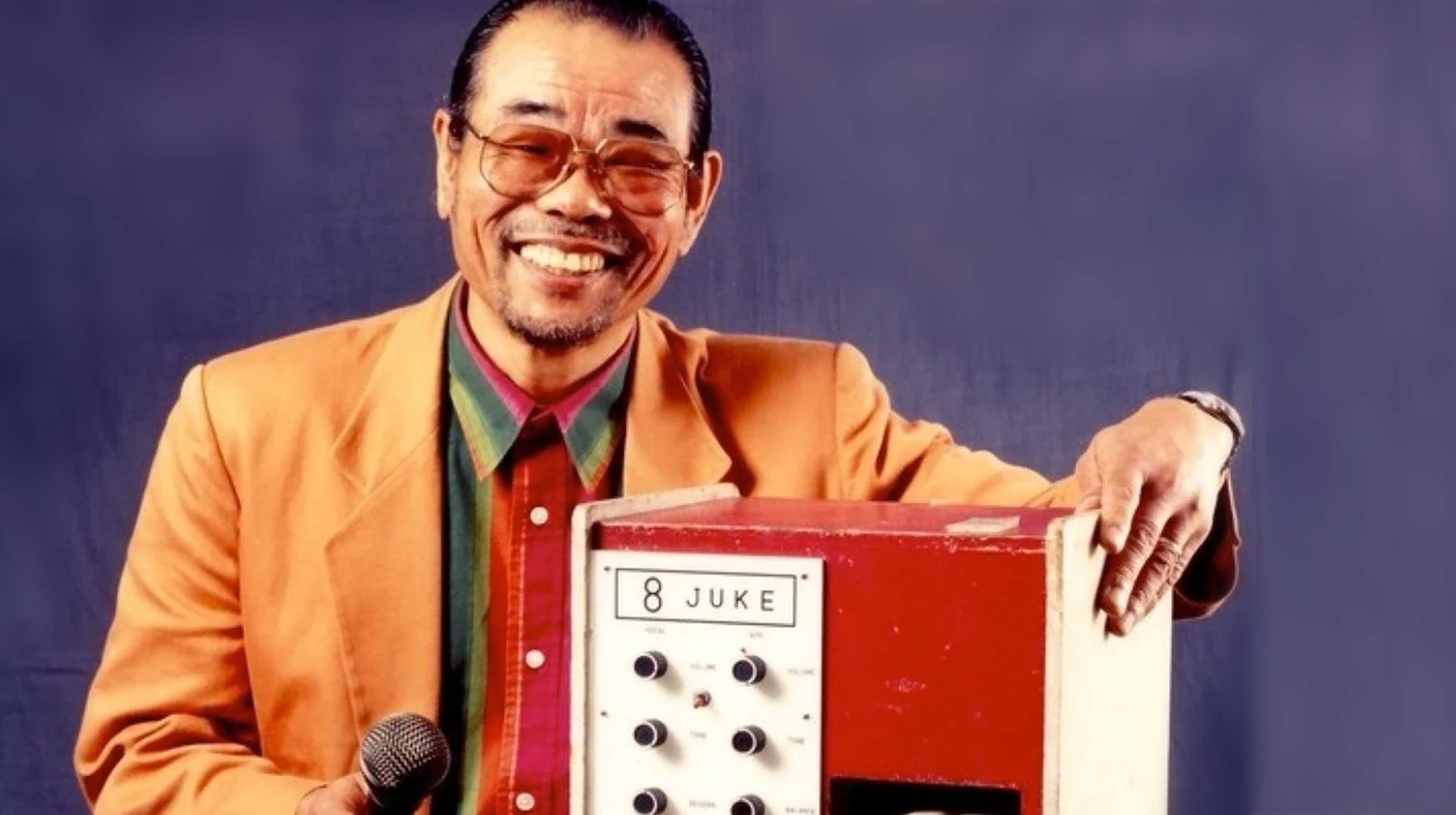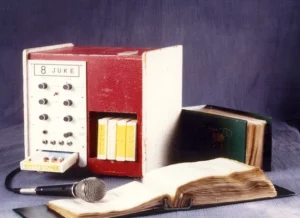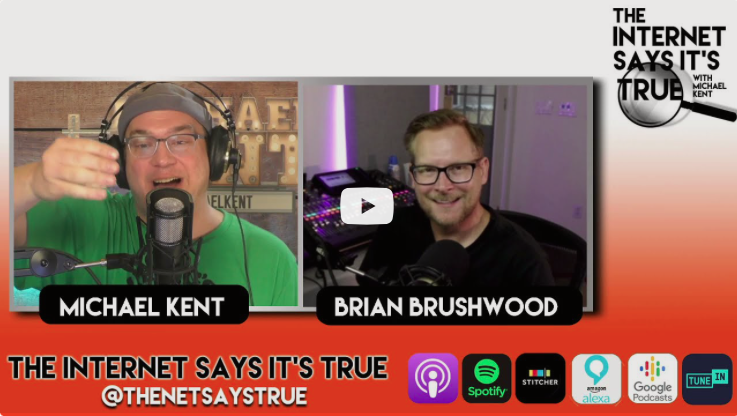The Invention of Karaoke: The Best Idea that Never Paid
A Japanese man named Daisuke Inoue is credited with being the “Father of Karaoke.” What is now a $10 billion industry started with him creating tiny machines out of car stereos for bars around Osaka. This episode is all about his invention and why Inoue never made any royalties on it – missing out on what would now pay him $100 million a year had he patented the invention. Then we play the quick quiz with the host of Scam Nation, Scam School, the Modern Rogue and host of “The World’s Greatest Con” podcast, Brian Brushwood.

Translated literally, it means Empty Orchestra. Like an orchestra playing without that one part to complete it – the vocalist. The idea of singing along to music obviously predates written history, but we can talk about Karaoke as a social activity as beginning in the 1960s and 1970s. Daisuke Inoue is widely recognized as the father of karaoke. But there are multiple claims to the invention of the activity of socially singing to music. For instance, there was a popular television show that ran in the early 1960s called “Sing Along with Mitch.” Mitch Miller, a slender man with a faustian goatee, faced the camera and conducted while artists performed songs behind him and lyrics appeared on the screen. Americans would gather around their television sets and sing along to the popular songs on the show once a week. But that wasn’t karaoke. That wasn’t “empty orchestra.” After all, there were vocalists singing the songs on the show.
Karaoke is a concept that really began in bars in Japan. And the formula that was necessary for the idea to take off was a combination of a few things: A microphone, a backing track without vocals, and the lyrics for the singer to read. Without those things, it’s really not karaoke. In other words, the thing that really made Karaoke take off was a machine that would provide those things. That’s why Daisuke Inoue is the father of Karaoke.
Karaoke exploded into a huge world-wide business. The global karaoke market is something like $10 billion dollars. But Daisuke never got rich from his invention. He never saw any royalties from this huge industry that he alone is credited with creating.
He was born in 1940 in Osaka, Japan. In the late 69s and early 70s, Daisuke played the drums and keyboards in a band that gigged in bars around town that were frequented by businessmen. He was never an accomplished musician, and later took on the role of being a manager for the band. Without a singer, the band would play covers of popular tunes and the Japanese businessmen would enjoy singing along to the songs. They began providing a microphone to the men so they could take turns being the lead singer of the band. These little bars, known as Sunakku bars, are tiny establishments where business people would go to unwind after a long day. And as they say – necessity breeds innovation. He became quite in-demand to provide this background sing-along music. Local bars were calling him “Dr. Sing-Along.” But he couldn’t be everywhere. And he couldn’t supply a background band everywhere. So, one night, on an occasion where Daisuke couldn’t attend and couldn’t find any musicians to attend a Sunakku bar, a business man that frequented the bar asked that Daisuke tape himself playing the music so it could be played for them to sing along to. An idea was born. Not only did he create a tape for that night, he created multiple tapes of him playing at home for them to sing to. But without someone there to organize them and play them, he had another idea. He called it the Juke-8.

The Juke-8 was a pretty simple machine. Inoue connected an 8-track player from a car stereo to a microphone and amplifier and added a reverb box and a coin slot. The 8-track tapes were loaded with the background tracks to all the most commonly requested songs of 1969 Japan. It was a huge hit. He couldn’t keep the thing from filling up with coins. So he made a few more. His electronics school friend was helping them wire the machines together. The Juke-8’s he had made had become to popular that when a club owner was planning on opening a string of clubs in Osaka, he requested a Juke-8 for each of them. By 1971, he was selling them as fast as he could make them – $425 a unit. Before he knew it, the karaoke craze had grown out of Osaka and invaded Tokyo. Daisuke Inoue had made 25,000 Juke-8 Karaoke machines.
Karaoke exploded into a huge world-wide business. The global karaoke market is something like $10 billion dollars. But Daisuke never got rich from his invention. He never saw any royalties from this huge industry that he alone is credited with creating.
The Karaoke Industry is a $10B industry. Around 10 percent of that comes from the United States -where my friends used to like to embarrass each other by going to a karaoke bar and choosing each others’ songs. Without fail, they always had me sing “Baby Got Back” by Sir Mix-A-Lot. It sucks because I can actually sing. If they gave me a Frank Sinatra or a Tim McGraw song, I’d bring the house down. But that’s not what Karaoke is about. It’s about sharing time with your friends, humbly being okay with sucking, having drinks and just blowing off some steam. It’s not just a machine that was invented by Daisuke Inoue. It’s a leisure activity. A piece of culture. And it’s hard to put a price tag on that.
That’s why Daisuke made the fatal mistake of never actually patenting his Juke-8 karaoke machine. Call it naivety, call it imposter syndrome, call it what you will. But in his words, he simply put things together that already existed. He didn’t invent the microphone, or the 8-track, or the amplifier. He just put them together with a coin slot and a reverb box. He didn’t even invent the word Karaoke – that was an existing word to describe a recording to replace an orchestra in the theatre after the musicians had gone on strike. He didn’t feel like what he had invented was worthy of patenting. He didn’t know what it would become. Imagine if Thomas Edison had said that and never patented the light bulb – “I didn’t invent a glass bulb or a filament or inert gas. I just put them together.”
Daisuke did make a small amount of money over the years from selling his machines. But he never saw a penny from a karaoke machine he didn’t make. He went on to invent a few other small things – like a machine to kill cockroaches that get inside karaoke machines. It’s estimated that, had he patented the karaoke machine, he would make around $100M a year in royalties. After his inventing days, he slipped into a horrible depression, feeling like he had entered the work-til-you-die rat-race. He claims it was his dog, Donbei, who pulled him out of it.
In 2004, more than 30 years after the invention of the Juke-8, Daisuke Inoue was invited to Harvard University to be awarded an Ig Nobel Prize. It’s not a particularly lofty prize. The Ig Nobel prizes are somewhat satirical prizes awarded to achievements that have a sort of trivial or unusual quality to them. Their ceremony is closed by the words, “If you didn’t win a prize – and especially if you did – better luck next year.” But nonetheless, Inoue was recognized as the Father of Karaoke. He is widely accepted as the man who started the global trend. Here’s some video from that night:
Today, Inoue is 80 years old and lives in a home on a mountain top in Kobe. He’s not bitter about never patenting his machine. He’s happy that he’s brought so many people together. He says that every night, he puts his three granddaughters to bed and sings songs with them. About once a week, they pull out one of his old karaoke lyric books and take turns singing them loudly to each other. It’s a social activity – it’s meant to bring people closer together. And to Daisuke Inoue, that’s all it was ever meant to be.
Review this podcast at https://podcasts.apple.com/us/podcast/the-internet-says-it-s-true/id1530853589
Bonus episodes and content available at http://Patreon.com/MichaelKent
For a special discount at SCOTTeVEST, visit http://theinternetsaysitstrue.com/deals

Sources for this episode:
https://www.wipo.int/wipo_magazine/en/2009/01/article_0010.html
https://www.theatlantic.com/technology/archive/2013/12/someone-had-to-invent-karaoke-this-guy-did/282491/
https://www.youtube.com/watch?v=4i1Wch5-jvU
https://www.scmp.com/lifestyle/entertainment/article/3096290/he-invented-karaoke-saw-it-take-then-walked-away-daisuke
https://www.openculture.com/2021/06/meet-the-inventor-of-karaoke-daisuke-inoue-who-wanted-to-teach-the-world-to-sing.html
https://en.wikipedia.org/wiki/Daisuke_Inoue

